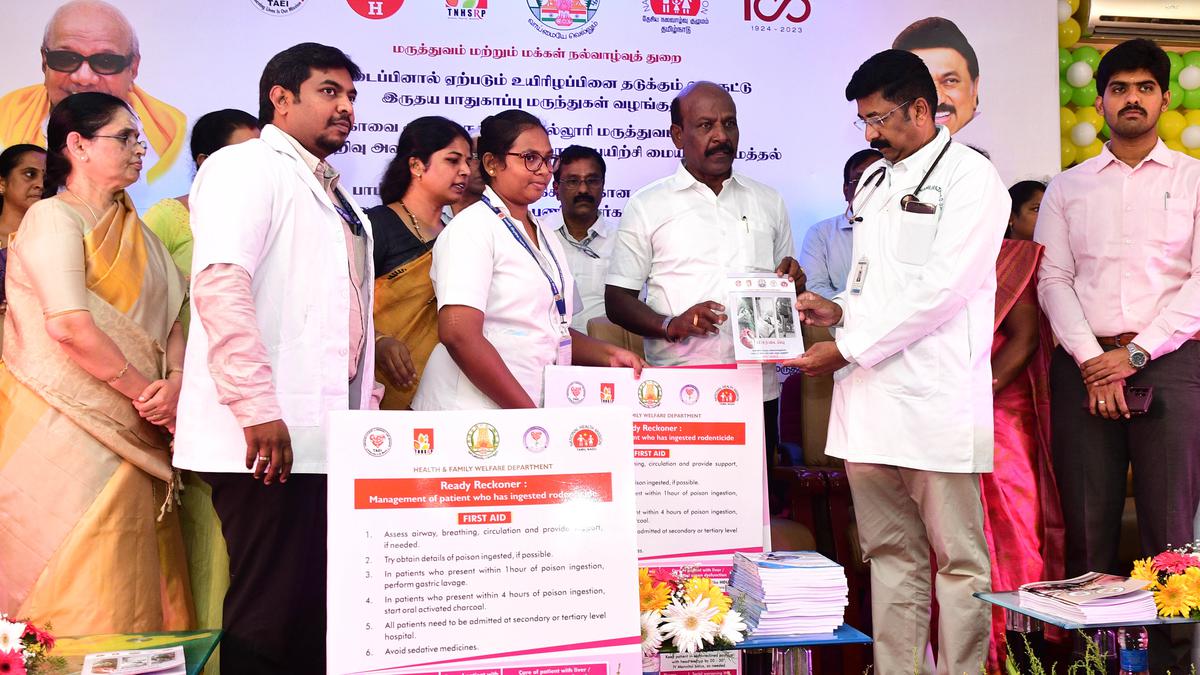
T.N. launches scheme providing life-saving cardiac drugs through more than 10,000 primary-level health facilities
The Hindu
Tamil Nadu on Tuesday launched a scheme which aims to provide life-saving emergency “loading dose” for persons who experience symptoms of myocardial infarction or heart attack through over 10,000 primary level health facilities.
Tamil Nadu on Tuesday launched a scheme which aims to provide life-saving emergency “loading dose” for persons who experience symptoms of myocardial infarction or heart attack through over 10,000 primary level health facilities. Health Minister Ma. Subramanian launched the scheme at Malumichampatti village in Coimbatore district.
Under the scheme, the government will make life-saving cardiac drugs available in 8,713 health sub-centres (HSC) and 2,200 primary health centres (PHC) and urban primary health centres (UPHC) across the State at a cost of ₹3.37 crore, he said.
“People who experience symptoms of cardiac arrest can be rushed to the HSCs in villages where nurses will provide these life-saving emergency doses as a first aid after consulting with experienced doctors through facilities such as the eSanjeevani app,” said Mr. Subramanian at the Coimbatore Medical College Hospital.
The Minister said there was an increase in the number of young people experiencing cardiac arrest after the COVID-19 pandemic and experts need to conduct research to find out the reasons.
According to the Minister, in a move to save victims of snake and dog bites from villages, all the 2,886 PHCs and UPHCs in the State have been maintaining stocks of anti rabies vaccines (ARV) and anti snake venom (ASV) for the past two years. Earlier, ASV and ARV were available only in taluk government hospitals, district headquarters hospital and government medical college hospitals.
“Whenever senior health officials or I visit a village, we check whether vials of these drugs are available in the local PHC. For effective utilisation of these drugs, the government will give training to 30,000 nurses. The Coimbatore Medical College Hospital has been recognised as the State-level centre for this training,” he said.













